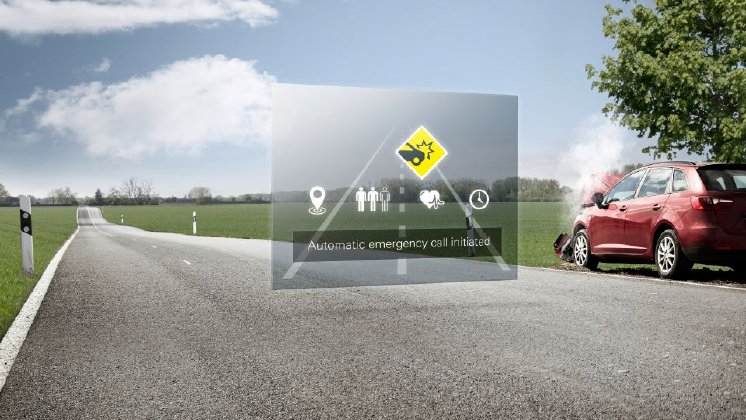eCall, the automatic emergency call system for vehicles sold within the European Union, was introduced in 2015 and has been a mandatory requirement for all new cars in the EU since 2018. eCall systems currently make use of 2G/3G circuit-switched cellular networks. As these networks will be phased out in just a few years, emergency call systems (in-vehicle systems and infrastructure) will be adapted to the newest 4G/5G packet-switched cellular networks.
The European Commission initiative to update the eCall standards and legislation to transition eCall to 4G and 5G networks is ongoing. The automotive industry will need NGeCall test solutions to deliver eCall modules that include the new NGeCall functions. In future years it is expected that an upcoming Chinese eCall standard will also require 4G/5G packet-switched cellular networks
The AG56xN series represents a cutting-edge line of 5G NR modules, leveraging the MediaTek MT2735 chipset to provide exceptional connectivity solutions. These modules support 5G Rel-15, delivering impressive data rates up to 4.0 Gbps downlink and 480 Mbps uplink within a 200 MHz bandwidth, showcasing a significant leap in wireless communication speeds. They are equipped with a comprehensive array of interfaces, including cellular (4 × 4 MIMO) and GNSS antenna interfaces, USB 3.0, PCIe (Gen3), RGMII, SGMII, multiple UARTs, SPI, I2C, I2S (PCM), SDIO, ADCs, and GPIOs, ensuring versatile connectivity options for various applications.
“We are very pleased to have Rohde and Schwarz validate the AG56xN series of automotive modules with the next generation of eCall features,” commented Norbert Muhrer, President and CSO, Quectel Wireless Solutions. “This sets a new benchmark for the future of intelligent transportation.”
With computing capabilities up to 15K DMIPS and SGMII/RGMII throughput reaching 2.5 Gbps, these modules are designed to meet high-performance requirements. Additionally, they have achieved eCall/NG eCall certifications, underscoring their reliability and safety for automotive applications. The AG56xN series modules are also compatible with automotive-grade Wi-Fi and Bluetooth modules, offering a proven combination that enhances connectivity solutions for the automotive industry and beyond.
The test setup for testing the 5G/LTE automotive module from Quectel included the R&S CMX500 communication tester along with the R&S CMX-KA098 5G eCall test option simulating a NG eCall Public Safety Answering Point (PSAP) and a R&S SMBV100B vector signal generator for GNSS simulation. The test confirmed a successful establishment of an 5G emergency call between the Quectel module and the PSAP. The transmission of the Minimum Set of Data (MSD) was successfully achieved without any data loss and the simulated GNSS position was accurately transmitted. Additionally, voice communication was established with clear audio quality.
As a highly versatile tool the R&S CMX500 with the R&S CMX-KA098 software option can be effectively used for NGeCall testing under reliable and configurable 5G network conditions. To accelerate the deployment of this technology, co-operation between companies within the industry becomes increasingly important. The Rohde & Schwarz and Quectel co-operation helps to mutually validate their solutions, reducing effort and accelerating time to market for our mutual customers.
Juergen Meyer, Vice President Market Segment Automotive at Rohde & Schwarz says: “This is an important milestone in the rollout of the next generation eCall system, which will have a significant impact on road safety. With our test equipment and Quectel’s 5G eCall module we successfully established an entire eCall process and verified this new key feature. We are very grateful to Quectel for this excellent collaboration which provides an important checkpoint from which the automotive industry can proceed with greater speed and confidence.”
The test setup will be shown at the Mobile World Congress in Barcelona, from February 26 to 29, 2024, at the Fira Gran Via, in hall 5, booth 5A80.
Proposal for caption: The European Commission initiative to update the eCall standards and legislation to transition eCall to 4G and 5G networks is ongoing.


